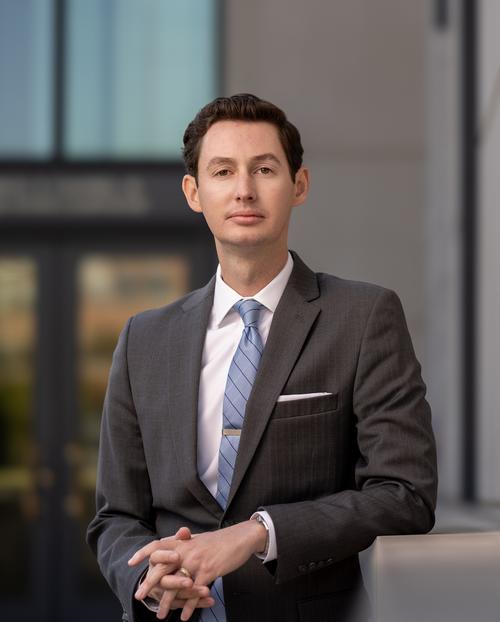
Your emergency room bill arrived three days after your accident on I-85, demanding payment in 30 days. The at-fault driver's insurance company is "investigating", your own insurer is asking for forms you've never seen, and you're scheduled for physical therapy next week with no idea how to pay for it.
The stress of handling medical bills shouldn't compete with focusing on your recovery. Alderson Law helps South Carolina car accident victims navigate the complex world of paying for medical bills, ensuring you get the care you need while protecting you from debt. Let’s review some of the options available for paying crash treatment costs while waiting for your settlement.
Does South Carolina Require PIP Coverage for Car Accidents?
No. Personal Injury Protection (PIP) coverage isn’t part of mandatory auto insurance. According to South Carolina Code Section 38-77-160, which governs uninsured/underinsured motorist coverage, our state only requires liability indemnity, which pays for damage you cause to others, not your own medical bills.
However, insurance companies must offer PIP coverage to South Carolina drivers, and you can choose to purchase it. If you have it, it typically pays $1,000 to $10,000 in medical expenses and lost wages regardless of who caused the accident. This coverage kicks in immediately without waiting for fault determination, which is a valuable option for covering initial treatment costs.
Check your insurance declarations page or call your agent to see if you have PIP coverage. Many motorists purchase it without realizing it, potentially missing out on using benefits they've already paid for.
How Does MedPay Cover Medical Bills After a Car Accident?
Medical Payments coverage (MedPay) is another optional insurance protection. Unlike PIP, it only covers medical expenses—not lost wages—but is often less expensive to purchase.
MedPay typically provides $1,000 to $5,000 in upfront medical coverage for you and your passengers. It works similarly to a health insurance policy, only specifically for car accidents, paying medical providers directly or reimbursing you for covered expenses.
The key advantage of MedPay is speed. While the at-fault driver's insurer investigates liability, this coverage helps pay for crash treatment costs such as ambulance rides, emergency room visits, diagnostic tests, and follow-up appointments. If it’s on your existing policy, it might help keep medical debt from accumulating while your personal injury claim develops. Review the terms with your agent.
Using Your Health Insurance for Crash Injuries
Your personal policy typically covers these incidents, but there are important considerations. Most health plans include a subrogation clause, which means your insurer can seek reimbursement from any settlement or judgment you receive later.
This creates a balancing act: using your health insurance prevents immediate out-of-pocket costs, but you may need to repay those amounts from your eventual settlement. However, health insurance companies often negotiate discounts with medical providers that you wouldn't receive as an individual patient, potentially reducing the total amount you'll need to repay.
Before using health insurance for collision-related treatment, understand your plan's subrogation rights. Greenville car accident lawyer Ryan Alderson and his team will outline how this affects your potential settlement.
What If You Don't Have Insurance Coverage to Pay Medical Bills After an Accident?
If you lack PIP, MedPay, or health insurance, there are still a few options for managing immediate medical costs:
- Medical liens. Many health care providers treat car accident victims on a lien basis—they agree to wait for payment until your case resolves. The provider files a lien against your future settlement, and you receive necessary treatment without upfront payment.
- Payment plans. Hospitals and medical practices often offer extended payment arrangements for accident victims. However, don’t ignore medical bills as they come rolling in. Contact providers immediately to arrange manageable payment schedules that prevent collections actions.
- Letter of protection. Ryan might also recommend this action, which essentially guarantees medical providers payment from your settlement proceeds. This allows you to receive treatment while your case develops.
How Alderson Law Structures Settlements to Eventually Pay Your Medical Bills
When your car accident case finally resolves through settlement or court proceedings, medical expenses typically receive priority payment from the proceeds. At Alderson Law, we handle the task of using settlement funds to satisfy medical liens, reimburse insurance companies that paid benefits, and cover outstanding medical debt so you don't have to juggle creditors while recovering from your injuries.
This is why it’s crucial to partner with our experienced Greenville car accident team right from the beginning. We understand how to structure settlements to cover all medical costs while maximizing your remaining compensation for pain, suffering, and future damages.
More importantly, we work directly with health care providers and insurance companies throughout your case, often preventing medical debt from becoming your problem in the first place. You shouldn't have to decide between getting necessary treatment and avoiding financial hardship—and we make it our mission to ensure you don't have to make that choice.

